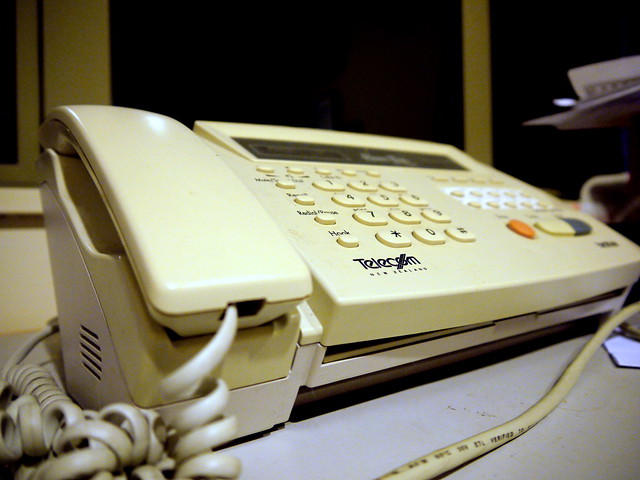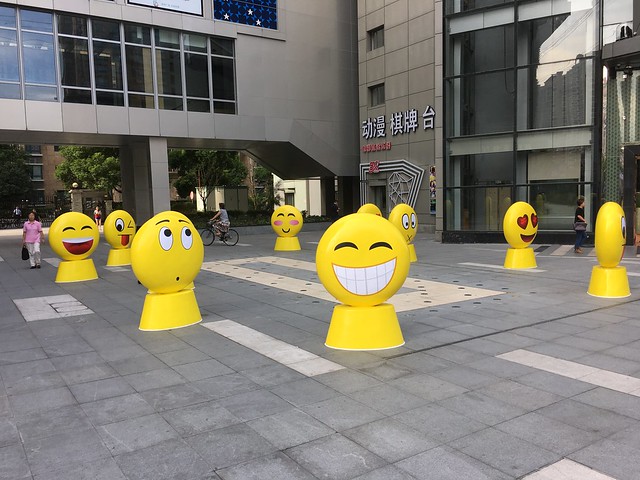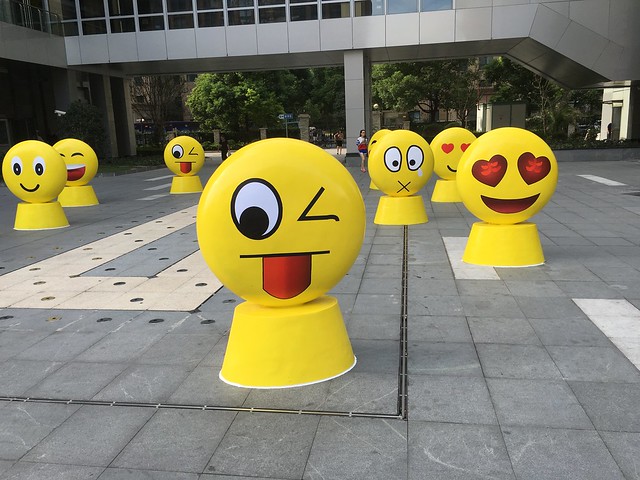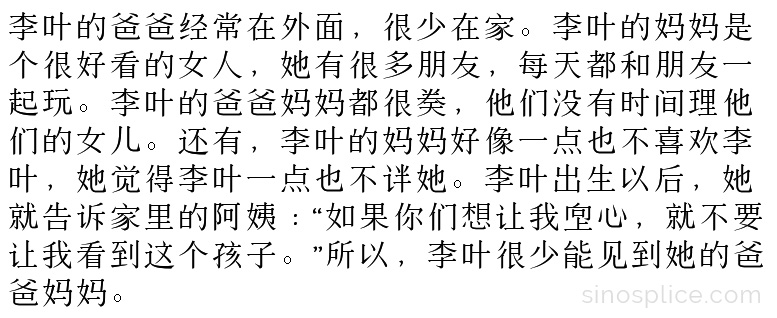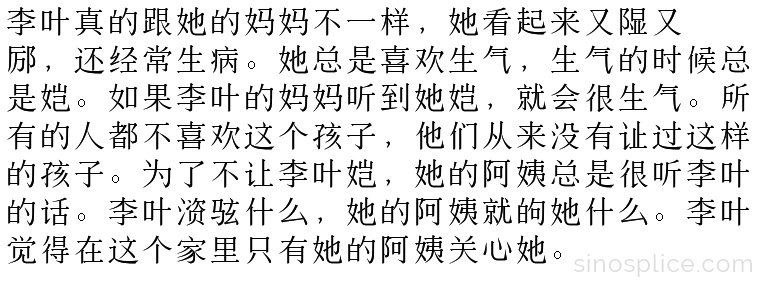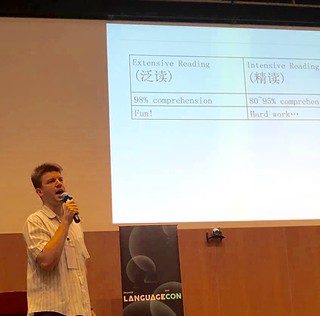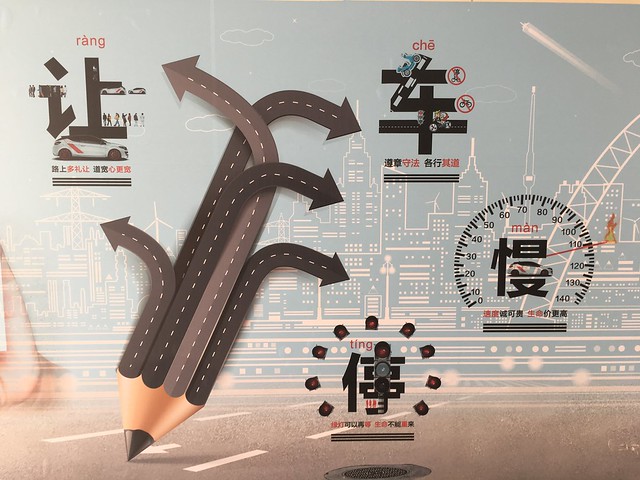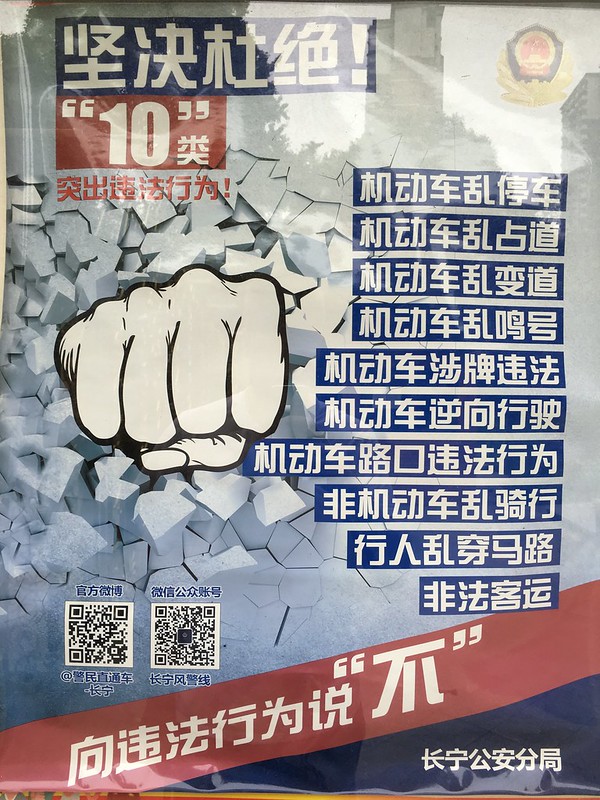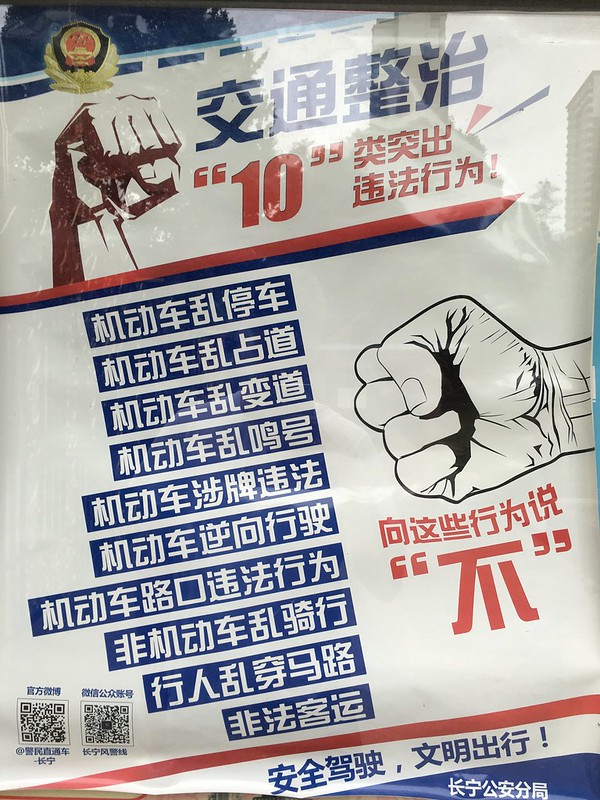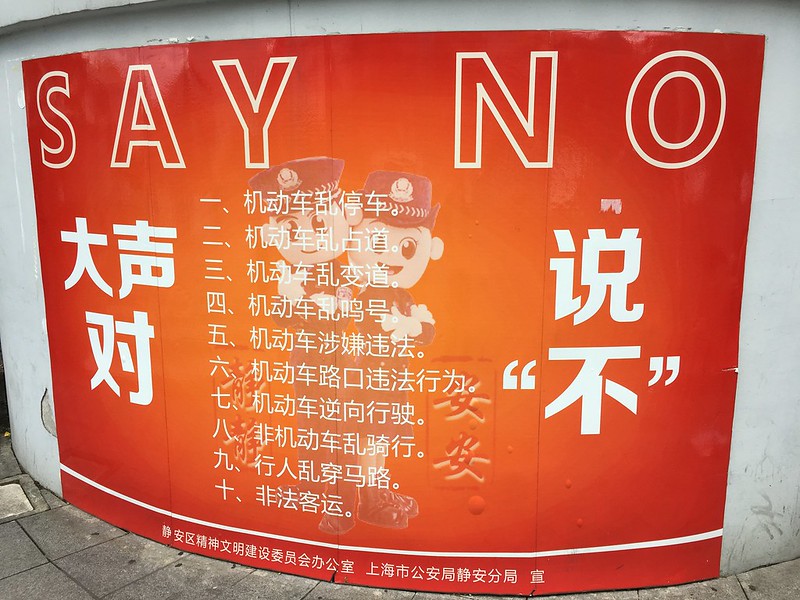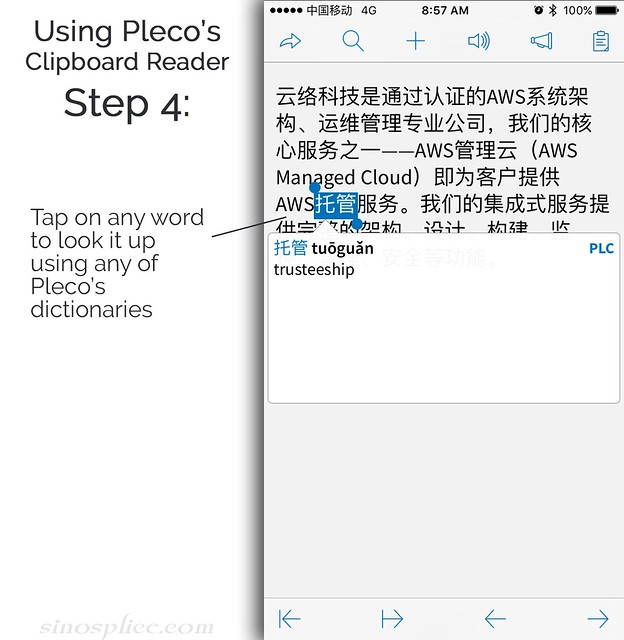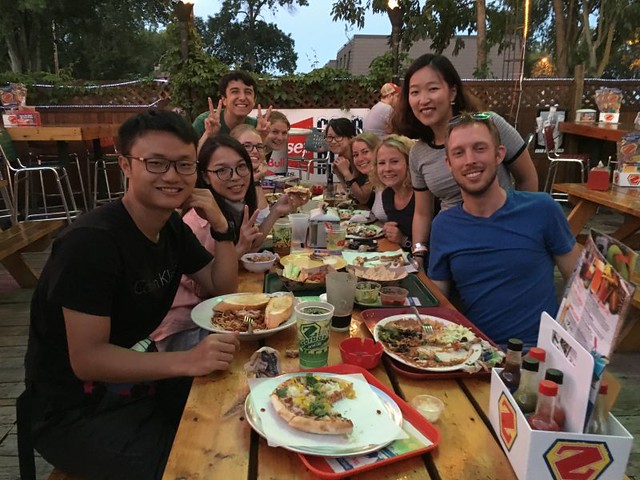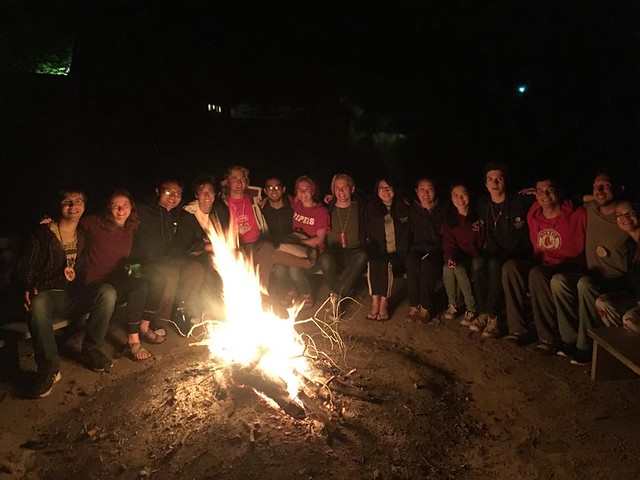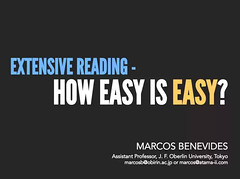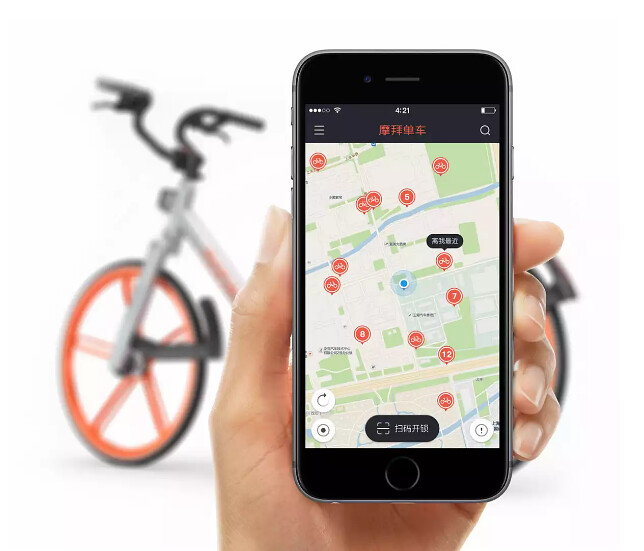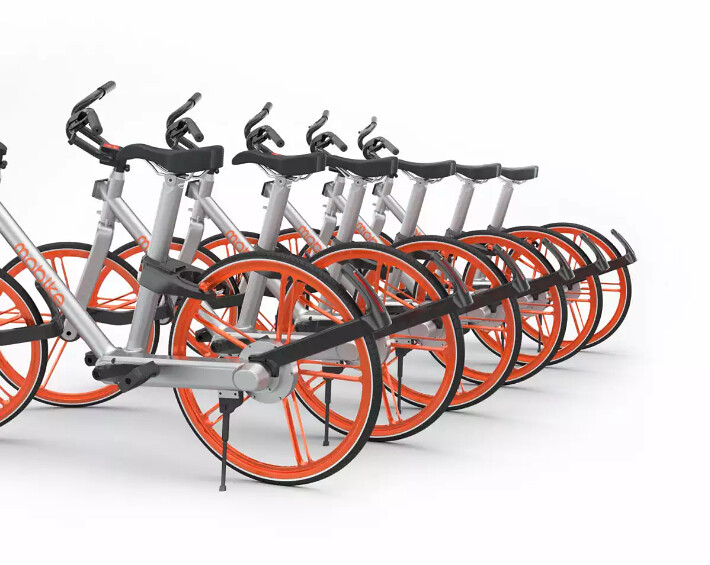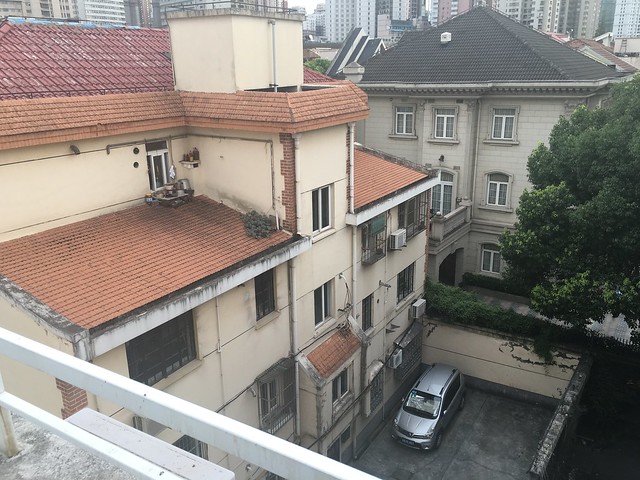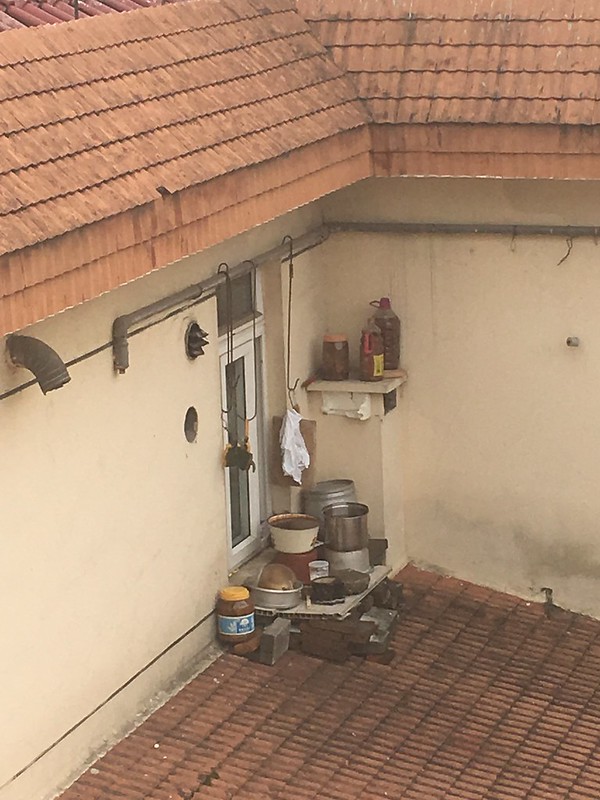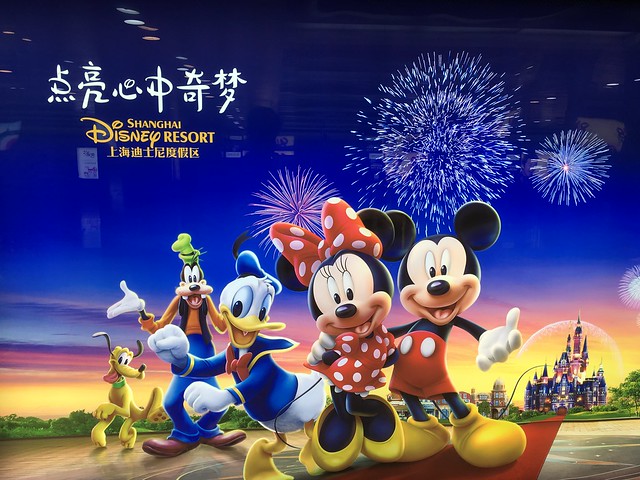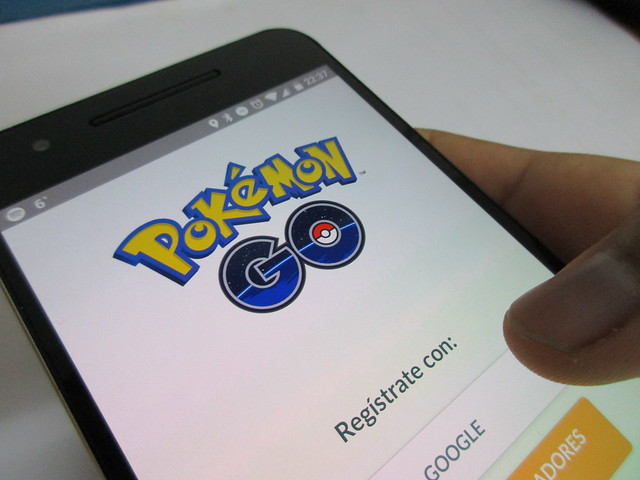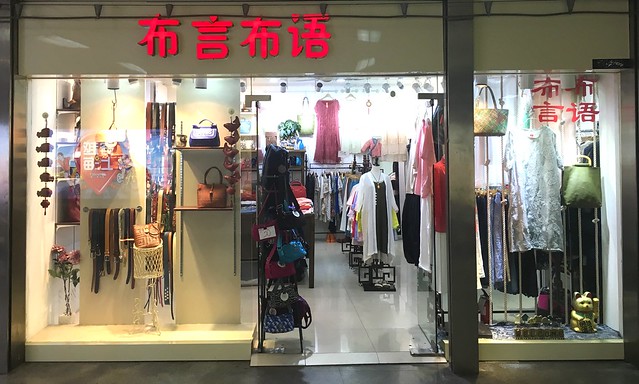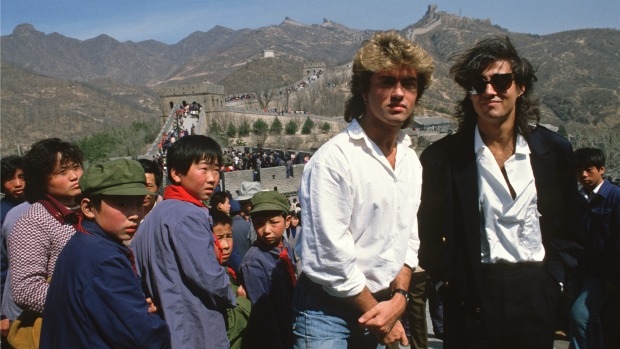08
Nov 2016Voting from Abroad and Faxing Difficulties
It’s 2016, and I thought my days of using a fax machine were well behind me. It turns out, however, that Hillsborough County in Florida allows mailed-in ballots and faxed-in ballots, but not emailed-in ballots. And due to the unreliability of regular post (I find that a lot of letters and packages simply never arrive these days), my options are down to fax or using an international delivery service like UPS or FedEx. But since those two each cost over $50 to send in my ballot, I opted to go the more archaic route: fax.
Since any major hotel in Shanghai has a “Business Center” (商务中心), I figured going to a nice hotel would be a good place to fax a document. Sure, it wouldn’t be the cheapest faxing option, but it would certainly be much less than $50, and I could get the help of the professional staff of a five-star hotel.
After calling ahead to the Jing’an Hilton and the Jing’an Shangri-La Hotel (both within walking distance of my office) to make sure both offer international fax services, I set out Friday afternoon to fax in my ballot.
Reality was a bit more complicated. The staff of both places (as well as a third, Yan’an Hotel, which I tried out since I was walking past it anyway) were actually not very familiar with using a fax machine, much less sending an international fax. Every trip resulted in a polite affirmative from staff that they could fax the document, followed by lots of calls on how to send an international fax, multiple attempts, and ultimate failure. The worst part was the way the fax machine’s “failure to send” message result was worded: “no answer or the line was busy.” “Or”?? Seems like in this case, the result could be clearer.
I began to suspect that the fax machine was only on during business hours, and also decided to take a friend’s suggestion and use an app. So I scanned my document, got it on my phone, and used an app called Genius Fax to send it in Friday night at around 8:30pm. Success!
I honestly thought that going the more human route would be easier and more certain, but when it comes to using an increasingly outdated technology, which relies on another increasingly outdated technology (international telephone calls), it just didn’t work out. I still don’t even know for sure if the main issue really was simply one of business hours and time difference, but at least the fax went through in the end.
So if you’re voting abroad, a few pieces of advice:
- If you can’t vote by email, vote by fax. You have to waive your right to secret ballot to do this, but at least you can be fairly sure your vote has been received.
- If you use the fax option, use an internet-based service. I used Genius Fax, but friends on Facebook also recommend FaxZero and HelloFax.
- If you’re voting from abroad and you’ve received your ballot, it’s not too late to vote. So even though today is the official voting day, you still have time, especially if you choose the fax option. Votes from abroad can decide a close election!
Hopefully this helps somebody. Get your vote in! Coming from the state of Florida, I felt additional pressure to be sure to vote in this presidential election, and getting that “successfully received” message from the app was quite a relief.
27
Oct 2016Investigations of a Bilingual 4-year-old’s Riddle
My daughter is almost 5, and she has a penchant for “riddles.” At first, these started out super simple, such as, “what animal can fly?” or “what is up in the sky during the day and gives us light?” Over time, they started to get more and more complex, morphing into questions such as, “what animal can fly but isn’t a bird?” or “what animals swim in the ocean but aren’t fish?” or “name three animals that live in the ocean but have no eyes.” These games are good linguistic exercises, reinforcing the vocabulary my daughter is picking up in the books we read her. In most cases, she can even do these riddles bilingually, and she enjoys quizzing her mom in Chinese on the ones I give her in English that she is able to answer.
Occasionally I’ve asked her to give me a riddle, and it’s usually something super simple, similar to the afore-mentioned “what is up in the sky during the day and gives us light?” one. Fair enough… I don’t expect the riddle of the Sphinx from a 4-year-old. But the other day she asked me this one:
What has 5 legs and lives in the sky?
Pretty certain that no animal has 5 legs, I figured she got the number wrong, and was counting a tail as a leg or something. So I guessed “dragon” and “pegasus” and the like, but she said those were wrong, and she knows a tail isn’t a leg. I was stumped!
The answer to the riddle is “a star.” (She’s most familiar with the 5-pointed star, which she’s always getting in sticker form.)
I was kind of blown away by this, because it’s a pretty cleverly crafted riddle. Trying not to be too quick to declare my daughter a genius, though, I gave some thought to what might be going on in her bilingual mind.
In Chinese, a 5-pointed star is called a “五角星,” literally, “5-corner-star.” But here’s the thing… “foot” in Chinese is 脚 (pronounced “jiǎo,” exact same pronunciation as 角 above), and it’s a word sometimes used to represent the whole leg. She hasn’t officially started learning Chinese characters yet, and she definitely isn’t aware of how the two Chinese words are written. So in her mind, is it all the same “jiǎo”? Is a Chinese five-pointed star a “five-legged star” to her?
I tried to investigate this question, but my daughter didn’t have much patience for my line of linguistic questioning (a trait she probably inherited from her mother). In the end, I got her to answer like so:
Me: Do you know what the 五角 in 五角星 means?
Her: It means “five legs.”
Her: [thinks for a minute]
Her: …or “5 corners.”
I’m not sure if she thought of that second meaning when she was devising her riddle, and neither is she. Language acquisition is a largely unconscious process, and that’s especially true for kids. She hasn’t come up with any similarly clever riddles since. We’ll see what happens.
25
Oct 2016Verbing for the Summer
Summer is over, but I can’t help sharing this 一下 / 一夏 pun:
It reads:
喝一夏,冰一夏
The “喝一夏” part is punning on a very common use of 一下 after a verb, whereas the “冰一夏” part is punning on the same usage in a less typical way.
An uninspired translation would be, “have a drink and cool off.” (Sorry, I have no inspired translation!)
13
Oct 2016Simulating 80% Comprehension in Chinese
A while back I wrote about What 80% Comprehension Feels Like, and I quoted the English examples used in Marcos Benevides’ excellent presentation which simulate 80% comprehension in English by including made-up English-like vocabulary words.
I’ve been thinking about that presentation a lot, both about the impact of such a demonstration, as well as about how it could be accomplished in Chinese. I ended up creating my own examples in Chinese. I’ll go ahead and share that first, and follow up with some discussion of the considerations involved.
(Before you attempt to read the following, please note that if your Chinese is not at least at an intermediate level, the following exercise is not going to work. Like its English-language counterpart, these examples are most effective with native speakers.)
Chinese Samples
Here is 98% comprehension:
Here is 95% comprehension:
Here is 80% comprehension:
Considerations
The tricky thing about reading Chinese is that it’s not just a matter of vocabulary and grammar; there’s an issue not present in English: the issue of Chinese characters. When a learner reads a difficult Chinese text, all three of these components tend to play a part in the difficulty: vocabulary, grammar, and characters.
But for the example to work for both learners and native speakers alike, there needs to be a way to guarantee that parts of the text were incomprehensible, as accomplished with made-up words in English. How can one do this in Chinese?
How I did it
First of all, to maximize the chances that the “intelligible” parts of the Chinese sample text are also readable by learners, I used as simple a text as I could: a Level 1 Mandarin Companion graded reader. For these examples, it was The Secret Garden.
Then, I had to be sure I chose the more difficult content words to swap out, and that I got all instances of them in each sample. Obviously, I had to count the words to make sure I got the desired percentage right. But equally important, to make my samples representative of real-life 98%, 95%, and 80% comprehension experiences, the words chosen should “cloud” reading comprehension to the appropriate degree, no more, no less.
But here’s the tricky part: how to represent characters the reader doesn’t know. The obvious way would be to create my own characters that don’t really exist. I enjoy doing this, but it’s time consuming, and to make it look truly credible it would have to not stand out at all when mixed in with the other characters. Too much work.
So I turned to the Unihan database of Chinese characters. Over the years, more and more obscure characters have been added to this set of characters, and I found a list of the most recent additions. (Most recently added should mean most obscure, but I chose Extension D from this page because it was both recent and a small download.)
A quick check confirmed that these characters were indeed obscure, but many of them didn’t look like simplified Chinese characters, or were just too weird, so I had to choose carefully. After making my choices, I also had to check to make sure that educated Chinese adults didn’t recognize the characters (guessing doesn’t count).
After that, I selectively swapped out characters in the samples. (My 80% comprehension text sample is the shortest, because I was running out of “good” obscure characters, and I didn’t want to have to find more!)
One interesting side effect of using such obscure characters in my texts was that most software couldn’t render them. Whatever fonts they used just didn’t include those bizarre characters. Only Wenlin, with its custom font designed to render all kinds of obscure characters, could display them all. So I had to do screenshots of Wenlin’s interface.
How to use this
I used these passages as part of a presentation on extensive reading at LanguageCon in September. I got the effect I wanted: Chinese members of the audience giggled (embarrassedly?) at the characters they didn’t know, especially when they got to the 80% comprehension example.
Chinese learners smiled wryly: there wasn’t much amusing about a fake recreation of the challenge they face on a daily basis, trying to read Chinese.
More than anything, I hoped that the Chinese audience could empathize with the learners of Chinese. Most Chinese people never know what it feels like to have to learn so many foreign characters as a part of a foreign language learning experience. Through these examples, though, they can get an inkling.
Actually, maybe they were chuckling in relief… at least they’ve got that challenge behind them.
The AllSet Learning blog also has a similar Chinese language article on this topic: 80%没有你想的那么多.
07
Oct 2016Traffic Characterplay
This image has been on posters all around Shanghai’s Jing’an District this past summer:
Each character is related to traffic:
- 让: yield
- 车: car
- 慢: slow
- 停: stop
Actually, each character is merely “decorated” in the traffic theme. It’s not true “characterplay” in the sense that characters are constructed or represented in some non-standard way for artistic effect. I’ll take it, though!
27
Sep 2016Chinese Views on Trump
As I write this the first presidential debate between Clinton and Trump is underway. I tried hard to view this debate, but in the end I guess I just chose a place with a lousy internet connection. (Despite the ubiquitous use of VPNs, internet issues like this are still a source of daily frustration for foreigners living in China.)
The other day a question on Quora caught my eye: How are the Chinese media covering Trump? Good question! I am not an avid consumer of Chinese media. I do scan headlines and read occasional sources, but for issues like the American presidential race, I tend to stick almost entirely to English language sources. It’s not an easy question to answer objectively, that’s for sure, so it’s nice to see a variety of responses:
Qiong Woo:
I did a research by going through all of Trump-related reports on China Daily since August. And here is what I found. Out of 711 articles under the section of “US and Canada”, how many times has Trump’s name made headlines? 11. One of them, technically wasn’t related to the election per se, it went Trick or Trump: The Donald, Pizza Rat among top Halloween costumes. And just out of curiosity, how many times has Panda Bei Bei? 4. Not bad, Bei Bei!
Xiao Chen:
Trump is a comic star in Chinese media. Many people, mainly from two groups, wish he will be the next president of the U.S.
The first group are the rubbernecks. There is a saying in Chinese: 看热闹的不嫌事大. Basically, it means rubbernecks like to see boisterousness and do not care how serious the consequences would be. A typical comment from this group would be like “we would have four long years of comedy to watch if Trump wins.”
The second group believes that the best gift you can have is a stupid opponent. Typical comment is “I can’t wait to see how badly Trump can mess the U.S. up.” Though Trump has many hostile sayings about China, his capacity of doing anything of real harm is questionable.
Xiao Chen also links to this article which includes some very interesting poll results, essentially asking those polled which candidate they personally prefer, and which candidate will be better for China. Results below:
It’s worth noting that this poll is from February 2016. (Anyone know of a similar, more recent poll?) See the full article for more details: What If Chinese People Could Vote for the President of the United States?
21
Sep 2016Rise Up and Resist the Motor Scooters!
I noticed these posters near my home a while back:
They’re propaganda from the Changning District police department, telling people not to tolerate 10 types of illegal behavior. But the first 7 of the 10 items in the list relate specifically to 机动车 (motorized scooters), including illegal parking, blocking lanes of traffic, reckless driving, etc. All are extremely common on the streets of Shanghai.
These 机动车 are often blamed for bad accidents, and the drivers of motor scooters can be seen to flagrantly ignore traffic lights and other traffic rules all over Shanghai. The drivers frequently do not even have legal plates. Many in Shanghai (especially drivers of cars, but also pedestrians) have been hoping for a police crackdown for quite a while, but normally very little is done. There are rumors that Shanghai may eventually ban them entirely. I sure wouldn’t mind.
But what’s with the fists in the graphics above? Is this some kind of subtle suggestion that violence is the answer? It definitely feels odd. (Although the graphic of the fist punching through the wall sums up pretty well how the drivers of these motor scooters can make other residents of Shanghai feel.)
Here’s one that seems a little less extreme (and more in keeping with the usual propaganda style):
Here’s the text of the 10 illegal behaviors (same on all 3 posters) if you’d like to study it:
- 机动车乱停车
- 机动车乱占道
- 机动车乱变道
- 机动车乱鸣号
- 机动车涉牌违法
- 机动车逆向行驶
- 机动车路口违法行为
- 非机动车乱骑行
- 行人乱穿马路
- 非法运客
Note: This article originally mistranslated 机动车 as “electric scooter,” when “motorized vehicle” (normally referring to a scooter, not an automobile) is the correct meaning. “Electric scooter” would be 电动车 or 电瓶车 (both normally referring to scooters, not electric cars). Thank you to reader E.T. for pointing out this mistake!
13
Sep 2016The only good mooncake is a MEAT mooncake
It’s almost that time of year again: China’s Mid-Autumn Moon Festival (or as the Chinese like to call it, “Chinese Thanksgiving,” without all the thanks giving and turkey). It’s that time of year when people eat a little snack called a mooncake.
Like many foreigners (and many modern Chinese), I am not fond of the mooncake (despite once participating in a mooncake-eating contest). Yes, I am aware there are many kinds. I have long since tried all the traditional kinds, such as 豆沙 (sweet bean paste) 莲蓉 (lotus seed paste), and 蛋黄 (egg yolk), as well as the fancy new kinds made with ice cream or Japanese mochi. Not a fan. But then I just recently had a freshly baked (not sweet) meat-filled mooncake, and I am a fan:
Yes, it took me 16 years in China to discover a mooncake I liked. It wasn’t exactly top-priority. The filling is referred to as 鲜肉 (it’s pork).
So, if you don’t like mooncakes, I feel your pain. But this kind (fresh!) is actually decent. I hear that is the kind people line up all day to buy.
06
Sep 2016Pleco’s Hidden Gem: the Clipboard Reader
Pretty much everyone knows that Pleco is the best Chinese dictionary app. It’s the best free Chinese dictionary app, and it’s got the best paid add-on Chinese dictionaries. The add-on bundles, while not super cheap, are a good investment for any serious student embarking on the long-term journey of Chinese study.
But why do so few people know about the clipboard reader? It’s free! From Pleco’s (iPhone) documentation:
Most of Pleco’s document reading functions are part of our paid “Document Reader” add-on, which you can purchase from the Add-ons screen. The one exception to this is the “Clipboard Reader” function, which is available even in our free app.
Note: this feature is apparently called the “Clip Reader” in the Android app, but it’s also free.
So what is it? Well, if you’re looking up a word, use the Pleco dictionary. If you have a chunk of text and can’t even begin to read the Chinese, use something like Google Translate. But if you are getting a handle on Chinese characters, the clipboard reader is what you want. Simply copy the text message or article out of WeChat, or your mobile browser, or whatever. Then open up the clipboard reader, and it’s automatically pasted in. Tap words to see definitions in a popup.
I’ve seen people paste whole sentences into Pleco’s dictionary function, and Pleco does a pretty good job of parsing sentences into words and showing the definition for each word. But that’s not really what the dictionary lookup is for. It’s much better for your learning if you first read what you can (without help), and then tap on the words you don’t know to get the pinyin and English.
You might also notice that you can also adjust the bounds of the word you’ve tapped on, in case Pleco gets it wrong. You can also use the arrows at the bottom of the screen (which don’t change position) if you’re going to be looking up almost every word.
Thanks to Mike Love of Pleco for continuing development of such a great tool all these years, and for making such great features free. Enjoy!
31
Aug 2016Practicing Chinese as a Camp Counselor
This is an interview with Nick Lenczewski, who served as a camp counselor at Concordia Village this summer. Although Nick is already a practicing interpreter in Minnesota, he doesn’t have many opportunities to practice Chinese in a fun environment, or to share in the enjoyment of the endeavor. In the interview below, I ask Nick for some details on what exactly he did, and what he got out of it.
John: Could you explain what the Concordia Language Village is? Who is it for?
Nick: The goal of Concordia Language Villages is to create global citizens. They do this through immersion language camps in many languages including Mandarin, Japanese, German, Swedish, Arabic, French, Spanish, Russian, Italian, and more. Programs are available to kids ages 2-18 and adults ages 18 and up. During the summer there are 4-week, 2-week, and 1-week long sessions. There are also weekend programs available for adults and kids during the academic year. The language villages are located in northern Minnesota, USA at different sites around Bemidji, Minnesota.
Students have a schedule which consists of classes in their target language, meals, activities like swimming, biking, or other cultural activities such as mahjong for the Mandarin camp. Everything is done in the target language and students are surrounded by several dozen counselors speaking the language to them throughout the day during their classes, at meal times, and in between. Every night there is an evening activity which is usually a game of some kind that involves speaking the language and usually learning the culture of the language. Each night there is a campfire. There is lots of singing done throughout the day every day.
John: What do you mean by “create global citizens?”
Nick: A global citizen is someone who is fluent in more than one language and understands and appreciates cultural diversity. A global citizen should express empathy for their neighbors in the village and be globally minded.
John: What was your role at the Concordia Language Village this summer?
Nick: I worked as a counselor at the Mandarin camp, which is called 森林湖 (Senlin Hu). (All language camps are called “forest lake” in their target language.) My main duties were working as a small group Mandarin teacher and as an activity teacher. Most of the 40 counselors had the same duties. I taught a class of 6-8 students ages 6 to 14 for my first two weeks at the camp. Their Mandarin level was the lowest of all groups and I usually had at least a few students with no Mandarin background. The students were there for one week each. After this I taught a mahjong activity class. For this class I taught it with another teacher since there were fewer students last two weeks of camp than the first two weeks. We had 8 students each time we held the activity class. I think it ended up being one of the most popular activity classes. The kids really liked mahjong. All of these classes were taught in Mandarin, though with the students with no language background I did speak some English with them some of the time.
Besides my duties as a teacher I slept in the same cabin along with three other counselors with students, and sat at a table (AKA 家) with students during their meals. Some of the activities are done during the camp are done as a cabin and some are done as a 家. In these instances I would be in charge of this group of students. Activities could include putting on a play, playing some games in a competition with other 家, or cleaning the 大楼 (building) toilets. In addition to the duties of a normal camp counselor, my job was to speak Mandarin with them.
John: Do you think the summer program is true immersion? What are the pros and cons?
Nick: Although we speak mostly in Mandarin with students, there are times when it is permissible to speak English. These times include anything involving safety announcements. In the evenings before bed each cabin has a meeting or 木屋会 (muwu hui), where everyone shares their highs and lows of the day. If it is too difficult to express something in Mandarin it is okay to speak in English. Besides speaking in Mandarin, the goal of the 木屋会 is to share what has been troubling you and what has been going well for you and not necessarily to practice Mandarin. This is done mainly to help students emotionally.
If immersion is having Mandarin spoken 100% of the time, then the camps would not be considered true immersion. At the same time, for Mandarin learners I think it is an awesome opportunity learn Mandarin. Some of these students had no Mandarin background before coming to the camp and within 4 weeks were speaking passable Mandarin. They were better than some of the foreign English teachers in China I knew who’d been studying for months.
In some ways I think total immersion like in China might not be as good as having an 90% immersion environment like this at Concordia when first beginning to learn Mandarin. It can be daunting to be in a true immersion environment and try to figure out a new language with no English assistance. However, at Concordia Language Villages English is used sometimes in order to help students learn.
A con of this system is having really little kids in the camp (below age 10). Simply by being at camp and away from home camp can be an emotionally challenging experience for many students (I myself was extremely homesick the first time I went to camp when I was 11). Learning a language on top of this is extremely difficult, definitely not the ideal state of mind for language learning. If you are not mentally calm it is very hard to learn a new language.
John: What are the pros and cons of being a counselor?
Nick: The biggest pro of being a counselor was meeting all of the other counselors. They were super cool, from all over the US, China, and world, and loved Mandarin, music, travel, and people. Bonding with them through classes, orientation, and the little free time we had, was easily the best part about the camp in my opinion. The friendships made with some of the students was also great.
Being a camp counselor is also a good opportunity to improve your own Mandarin. Many of the counselors I met had never been to China or only once for a short amount of time, but they still had great Mandarin. I think they owe this in part to being a counselor at camp over the years. Many of them had been a counselor for multiple years. I’m also an author and for me this was a great opportunity to promote my book.
A major con is that the pay being quite low. Even with room and board it is still pretty low, just over $1,000 for 4 weeks. Another con is that there is almost no free time. From the time students wake up at 8 am to the time the go to sleep (somewhere between 10 and 11 pm, typically), you always need to be on and ready to help in some way. This includes Saturday and Sunday as well since we also had activities and things for students to do on these days.
John: Describe the kids that are there. Why are they there, and what do their attitudes tend to be?
Nick: The students came mostly from all over the US but there were also students from UK, Singapore, Japan, and I imagine other countries as well. These students had all different levels of motivation. Some had great Mandarin and others didn’t know anything. Some students were eager to learn Mandarin while others were there more for the camp experience regardless of the language immersion aspect. I expect some students were there because their parents wanted them there, while others were there because they wanted to be. Many students had been to the camp multiple times, some at least 5 times.
One activity we did every day was called 中国通 (Zhongguo Tong) where students were given a special name tag and had to speak only in Mandarin the entire day. If a counselor heard them speaking English, they would take it away and thus they would not receive a 中国通 bead for that day (the beads are a way of rewarding students). Those students who really wanted to be at camp were able to get a dozen or more of these beads over the four weeks they were there by speaking lots of Mandarin and no English, while those who weren’t as keen on speaking Mandarin at camp were only able to get a few. They did this not by speaking Mandarin, but by not speaking any English and speaking a little Mandarin.
John: Can you share a story or two about special “learning moments” you witnessed or were part of?
Nick: During my time as a counselor I was placed in a cabin with the male students, ages 13-16 who were with the camp for 4 weeks. Two of these students had never learned Mandarin before so I was curious to see how much they would be able to learn in 4 weeks. Each night during our 木屋会 everyone shared one high and one low from the day. In the beginning these two students needed to speak in English since they had no Mandarin abilities. But by the end of the second week they were able to tell us their highs and lows. Highs often consisted of having a good meal, making a new friend, or finishing a test. Lows included the hot, humid weather, the mosquitos, or their homework load. I was amazed at how quickly they progressed in just a few weeks.
One evening activity we did was called 三国 (“three kingdoms”). Students formed three separate countries with their own special cultural taboos, greetings, languages, and exchange rituals. The object of the activity was to send out people to a different country to collect their sacred item (pool noodle, badminton racket, basketball). But in order to collect the item, one needed to figure out the culture of the other group by successfully greeting them, blending in with their culture, and completing their ritual of exchange, all without messing up. There was therefore a lot of trial and error. One group’s culture revolved around dancing, another around being anti-social, and the third around worshiping a burping deity.
At the end of the activity at our evening campfire we talked about what it was like for the students. We also spoke in English since we wanted everyone to be able to freely discuss what happened. Based on the amount of student engagement this was the most successful evening activity we did in the 4 weeks I was at camp. As counselors we asked students what it felt like to try to understand a new culture, we asked them to consider the biases they had about a culture before interacting with them. One student said it was hard to blend in with one culture because they did not accept people who smiled and she smiled a lot. Another said it was difficult to blend in with the dancing culture because he couldn’t dance well.
Some students talked about the prejudices that they had towards each other at the beginning of camp but that they were able to overcome differences and become friends. The experience taught everyone about how to be accepting of others, not only those of other cultures, but also those within the same city or state.
John: So what is your takeaway from the experience? Do you recommend becoming a Chinese camp counselor to others?
Nick: If you are looking to improve your Mandarin I think being a counselor at the language village is a good opportunity. For someone like me who has been studying Mandarin for 9 years and has worked as a translator and interpreter for several years in China and USA, it was not necessarily as big of a help. I didn’t make that much of an effort to improve my vocabulary by using new words in conversation with other counselors, but I did learn a few dozen words passively, mostly words like 篝火 (camp fire), 防蚊液 (mosquito repellant), and 防晒霜 (sunscreen).
For me, as a counselor, the real value of Concordia Language Villages was meeting the other counselors, all of whom all love languages, traveling, music, performing, or living abroad. In addition to bonding with the other Mandarin counselors, there was a week-long orientation at the beginning of the summer camp where counselors of all language camps were able to meet and prepare for camp. Meeting all the people from other camps (Italians, Russians, Japanese, Spanish), listening to their music, and trying to connect with them made me want to learn their languages, experience their cultures, and see their countries. In my opinion, learning a language is not a goal, and instead a means. The goal is to connect with and understand another person; the language is the means to do this. Learning their language shows you care about them, and caring about someone is the building block for having a good interaction with them. Life is all about love and there is a whole lot of it at Concordia Language Villages.
This interview was not intended to be an ad or direct endorsement for Concordia Language Villages, but I had heard of the immersion camps at Middlebury, and I had no idea there were others in places like Minnesota. Then when I met Nick and discovered he was going to be a counselor at one, I jumped on the opportunity to learn more about them.
If you have questions for Nick, please leave a comment on Sinosplice or get in touch with him through his website.
25
Aug 2016What 80% Comprehension Feels Like
If you’re learning a foreign language and you don’t know what extensive reading is, it’s time to learn. This presentation deck by Marco Benevides is a great place to start: Extensive Reading – How easy is easy? (Excerpts below from: Extensive Reading: Benefits and Implementation. Benevides, Marcos. J. F. Oberlin University, Tokyo. Presented at IATEFL 2015 in Manchester.)
One of the major principles of extensive reading is that if a learner can comprehend material at 98% comprehension, she will acquire new words in context, in a painless, enjoyable way. But what is 98% comprehension? Humans are actually really bad at gauging this, partly because schools rarely teach this way. 98% comprehension means that only 1 in 50 words is unknown. But still, it’s hard to have a feeling for exactly what that’s like.
This is where Marco Benevides’s presentation is so genius. Here is 98%:
You live and work in Tokyo. Tokyo is a big city. More than 13 million people live around you. You are never borgle, but you are always lonely. Every morning, you get up and take the train to work. Every night, you take the train again to go home. The train is always crowded. When people ask about your work, you tell them, “I move papers around.” It’s a joke, but it’s also true. You don’t like your work. Tonight you are returning home. It’s late at night. No one is shnooling. Sometimes you don’t see a shnool all day. You are tired. You are so tired…
(And in case you’re not a native speaker of English or don’t quite get it, yes, there are nonsense words in there. Those represent the uncomprehended 2%.)
Here’s 95%, which represents a departure from extensive reading, because it requires more effort, and tends to be slower and less enjoyable:
In the morning, you start again. You shower, get dressed, and walk pocklent. You move slowly, half- awake. Then, suddenly, you stop. Something is different. The streets are fossit. Really fossit. There are no people. No cars. Nothing. “Where is dowargle?” you ask yourself. Suddenly, there is a loud quapen—a police car. It speeds by and almost hits you. It crashes into a store across the street! Then, another police car farfoofles. The police officer sees you. “Off the street!” he shouts. “Go home, lock your door!” “What? Why?” you shout back. But it’s too late. He is gone.
Finally, let’s skip to the oh-so-frustrating 80% comprehension level:
“Bingle for help!” you shout. “This loopity is dying!” You put your fingers on her neck. Nothing. Her flid is not weafling. You take out your joople and bingle 119, the emergency number in Japan. There’s no answer! Then you muchy that you have a new befourn assengle. It’s from your gutring, Evie. She hunwres at Tokyo University. You play the assengle. “…if you get this…” Evie says. “…I can’t vickarn now… the important passit is…” Suddenly, she looks around, dingle. “Oh no, they’re here! Cripett… the frib! Wasple them ON THE FRIB!…” BEEP! the assengle parantles. Then you gratoon something behind you…
Yikes.
I run into this number “80%” quite a lot in my work. Maybe it’s because of the 80/20 rule; I don’t know. But what I do know is that many learners think 80% comprehension in a conversation or in a business meeting is enough to follow. In reality, 80% is extremely frustrating because you can get so much of the conversation, but you’re still fairly clueless about a lot of the meat of the discussion. Generally speaking, you’ll know the topic, but fully understand virtually none of the details discussed. Pretty maddening.
This isn’t actually bad news… It doesn’t change the numbers of hours of focused practice needed to become fluent in a language. In fact, it goes a long way toward explaining that intermediate plateau, as you slog from an average of 60% comprehension or so to closer to 90%. That’s why you’re learning so much but don’t feel the breakthrough. It’s also why it’s so important to have a good teacher, and materials at your level.’
Ready for this same experiment in Chinese? See: Simulating 80% Comprehension in Chinese.
23
Aug 2016Mobike in Shanghai
It’s quite the cliche to talk about “the Uber for x” in the startup world. Those types of businesses tend to not work when they’re not Uber (and Uber itself had a had time in China). But there’s one that I really like: Mobike, AKA 摩拜单车. Like Uber, it’s app-based, and you open up the app to see not where drivers are, like Uber, but to see what parked Mobike bikes are near you.
Then you use the app to unlock the bike and pay 1-2 RMB for each ride. Lock the bike somewhere public when you’re done. So simple!
If you live in Beijing or Shanghai, you can even try out the app (without riding a bike) just to see what how many bikes are parked around you. There’s usually a decent number wherever I am in Shanghai. Once you know what a Mobike looks like, you’ll start seeing them everywhere in this city. (The new “punch buggy”??)
The only “catch” is that you have to pay a 300 RMB deposit to start using the bikes. That’s fair. Coincidentally, 300 RMB is also my “cheap bike budget.” It’s the amount I’ll pay for a bike that’s “good enough” to ride but is not likely to get stolen. Not a bad price for never having to worry about your bike getting stolen again.
18
Aug 2016The World Is Your Closet
Over the years I’ve noticed some interesting attitudes toward public spaces here in China. One of the most perplexing, from a western perspective, is one where one’s own home is kept as pristine as possible, while public spaces are treated with much less respect. Taken to the extreme, you might even say public spaces are sometimes treated like a dumpster: littering, dumping of liquids, and worse.
What blew my mind about this “public spaces don’t need to be kept clean” (AKA “the world is your dumpster”) attitude was how clearly and finely the line can be drawn. In some cases, I’ve seen apartment residents treat the hallway right outside their own apartments with this kind of total disregard for cleanliness: stacks of garbage, leaky garbage bags, and other jetsam dumped right outside their own apartment doors. (The idea is that it will be disposed of later, either by the resident who dumped it, or by the cleaning staff of the building. In either case, the garbage is kept out of the clean home, and anyone else who has to share the hall just has to deal with it.)
But I’ve also noticed a less common phenomenon that’s kind of the opposite: claiming public spaces for personal use. To use the “public space” of the apartment hallway as an example again, a resident might discover that the building storage closet in the hallway is not normally locked, and then store some of his own (not so valuable) stuff in that closet.
I noticed a pretty weird example (not at all typical, I’m sure) of this “the world is your closet” attitude just behind my Shanghai office building. Take a look at this apartment building:
See the stuff stacked outside the window? Yes, the roof has been turned into a closet.
I’m not sure how well this works, considering how often it rains, but there you have it.
16
Aug 2016Chinese Characters with Disney Characteristics
I noticed this poster in the Shanghai Metro:
You gotta love Disney’s attention to detail. If you look at the characters carefully, you’ll see that elements of the iconic “Disney” typography have been incorporated into the Chinese characters:
(Oh, and nope, I’m still not planning any new trips to Shanghai Disneyland!)
10
Aug 2016Year 16
In 2004 I wrote a blog post called To Stay in which I shared my intention to stay in China “indefinitely.” I can’t think of it as anything but a great decision for my career and my personal life. Since then, I’ve gotten married, had two kids, gotten my masters degree, had a good run at ChinesePod, and founded AllSet Learning and Mandarin Companion.
Is life in China challenging? I guess… Internet issues are the #1 (almost daily) frustration, but obviously pollution and food safety are major concerns, especially now that I have children of my own.
What I totally didn’t anticipate was the difficulty of seeing my parents grow old from afar. In that previous blog post, I even acknowledged that “the years before [my parents are] actually old were dwindling,” but I don’t think I fully appreciated what that meant. How could I?
This is the reason for my recent silence, pretty soon after resuming writing in June. My parents are now old, and my father’s health is suddenly not good, so I’m trying to get back to Tampa more often to see him (and my mom). Once a year no longer cuts it.
So I’m working a few things out, but I’m hanging in there. “Indefinitely” hasn’t changed, but I think I’ll be taking a lot more plane trips now.
14
Jul 2016What I wish my Chinese teacher knew
One of the things we do at AllSet Learning in Shanghai is to continually train our teachers. Of course it’s not that our teachers have no training; in fact, many of them have masters degrees and many years of teaching experience. The issue is that many of the academic degrees and classroom teaching experience attained in China draw on an outdated teaching tradition, largely a variation of how the Chinese educational system teaches Chinese children.

Add to that the fact that our service is based on deep personalization for individual learners, each with her own goals, needs, interests, and quirks, and you pretty much have an endless bounty of teaching issues to discuss and improve upon.
As a result, we’ve been sharing some of our ideals, methods, and tips with our teachers in Chinese on WeChat. Then we also post a lot of the same material to our own blog. Some articles come from old Sinosplice posts (like this one), sharing the foreign learner perspective with Chinese teachers (like this one), while others share more specific teaching tips. (We have a number of articles of this type which haven’t yet been ported from WeChat.)
The point of this post is to ask the question: What do you wish your Chinese teacher knew? I’d be happy to make it into a topic that we address in Chinese in a constructive way, and share online.
Obviously, we’re not talking about politics or cultural differences. It’s issues like:
- I know my tones suck; why won’t you correct me more?
- I really don’t think I need to be able to hand-write 2000 characters…
- If you’re my Chinese teacher, why do you ask me to call you “Sunny” instead of something Chinese?
- This textbook doesn’t even have the word for “cell phone” in it… why can’t we update?
Please share your ideas in the comments, or on Facebook, or whatever. All constructive feedback welcome! This is about working to improve the situation, not simply whining.
12
Jul 2016Pokémon NO GO in China
I keep reading about how Pokémon Go is so wildly popular everywhere, and I tried to play it in China, but it just doesn’t work. I managed to use a VPN to create an account using my Google login, and I even caught one little creature (I think it was just part of a beginner tutorial), but then the virtual world (in China) was a vast wasteland… nothing to play. Later, I couldn’t get the app to connect to the server over 4G while I was out and about. Still later, the app acted like I didn’t have an account anymore.
I see now that there is already a Chinese Pokémon Go clone. This is one of the things that disturbs me so much about using the internet in China. It’s not just that we’re so often forced to use cloned apps instead of the real deal (although that, too, is annoying). It’s that we’re cut off from the rest of the world’s users, isolated.
Which is, of course, exactly the point. Even for Pokémon Go.
07
Jul 2016Punny Clothing Shop
This is a clothing store in Shanghai’s Jing’an Metro Station:
The name of the shop is 布言布语 (Bù Yán Bù Yǔ). The pun involves the character 布, which in this case, is a substitute for 不.
The original expression is: 不言不语, which means “to not say a single word.”
The pun gives us 布言布语 (the pronunciation matches exactly), riffing on words like 布料 (“cloth”) which use the 布 character.
Truth be told, 布言布语 is not a vey clever name. Sure, it has the pun, but 不言不语 has nothing to do with clothing. Still, somebody thought it was good enough for a clothing shop name.
Other Chinese brands have similarly used a language theme in their names. The first one that comes to mind for me is “BreadTalk,” which is 面包新语 in Chinese.
30
Jun 2016Wham! vs. Queen in China
OK, for some reason I was reading Wham!’s Wikipedia page a while back (yeah, I know), and I found this hilarious section:
In March 1985, Wham! took a break from recording to embark on a lengthy world tour, including a ground-breaking 10-day visit to China, the first by a Western pop group. The China excursion was a publicity scheme devised by Simon Napier-Bell (one of their two managers—Jazz Summers being the other). It culminated in a concert at the Workers’ Gymnasium in Beijing in front of 15,000 people. Wham!’s visit to China attracted huge media attention across the world. Napier-Bell later admitted that he used cunning tactics to sabotage the efforts of rock group Queen to be the first to play in China: he made two brochures for the Chinese authorities – one featuring Wham! fans as pleasant middle-class youngsters, and one portraying Queen singer Freddie Mercury in typically flamboyant poses. The Chinese opted for Wham!
It would be cool to see those two brochures, if they still exist. (They’re probably in hilariously bad Chinese, if in Chinese at all.)
So how did the concert go? The Guardian gives an amusing account:
According to Simon Napier-Bell, the band’s manager, Michael tried to get the spectators to clap along to Club Tropicana, but “they hadn’t a clue – they thought he wanted applause and politely gave it”.
He said some of the more adventurous Chinese did eventually “get the hang of clapping on the beat, even learnt to scream when George or Andrew waved their butts”.
The diplomat reported that “there was some lively dancing but this was almost entirely confined to younger western members of the audience. Some Chinese did make the effort, but they were discouraged in this by the police.
Sounds like a blast. The tickets cost 5 yuan. Wham! did not enjoy it.

